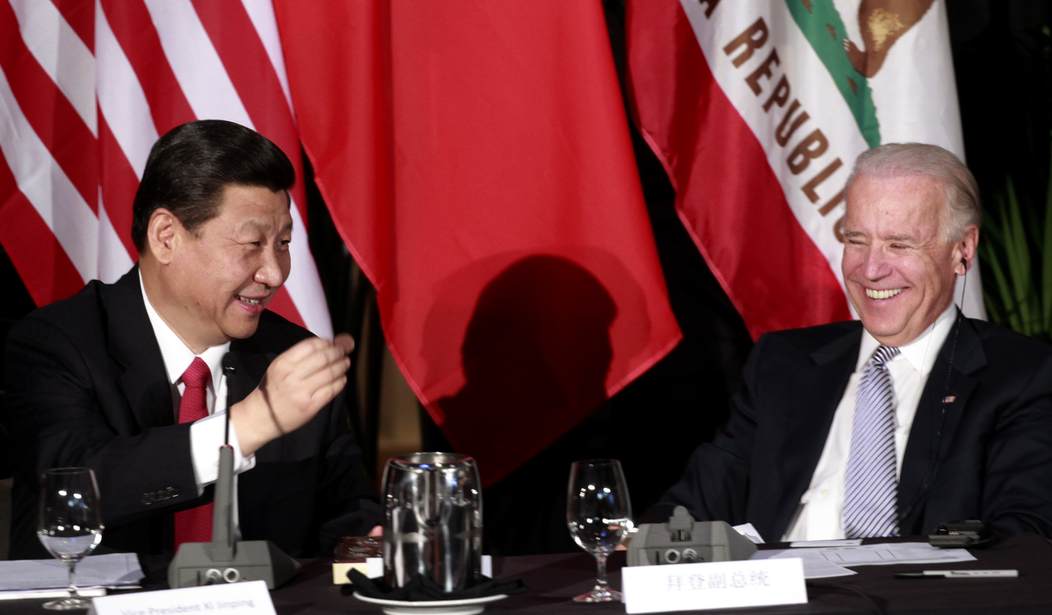At a CNN Townhall on Thursday, Joe Biden appeared to alter U.S. policy with regard to Taiwan when he answered a question from the audience about China’s recent test of a hypersonic missile and whether the U.S. would come to Taiwan’s defense if China attacked the country.
“Yes, we have a commitment to do that,” Biden said.
Actually, there is no “commitment” to defend Taiwan, only vague assurances and diplomatic double-talk. The Taiwan Relations Act, passed by Congress in 1978 after diplomatic relations had been restored with Beijing, offers a means to provide the country with arms even though the U.S. doesn’t recognize Taiwan as an independent nation — only a “province” of China. It has followed a policy of “strategic ambiguity” when it comes to military intervention to protect Taiwan if China attacks.
Saying we have a “commitment” to defend Taiwan isn’t very “ambiguous” is it?
“Military, China, Russia, and the rest of the world know that we have the most powerful military in the history of the world,” Biden said after pausing to collect his thoughts. “Don’t worry about whether they’re gonna be more powerful. What you do have to worry about is whether or not they’re going to engage in activities that will put them in a position where they make a serious mistake.”
Biden repeated his claim to have spoken with Chinese President Xi Jinping “more than any other world leader has. … You hear people sayin’ ‘Biden wants to start a new Cold War with China.’ I don’t want a Cold War with China. I just want to make China understand that we are not going to step back, we are not going to change any of our views.”CNN’s Anderson Cooper cut in to ask Biden to clarify whether that would mean the United States would come to Taiwan’s defense if China attacked.
“Yes, we have a commitment to do that,” Biden replied.
It’s been widely assumed by both the U.S. and China for 40 years that if China tried to impose its will on Taiwan and look to force its reunification with the mainland, the U.S. would respond. So China is playing the long game, looking to build up overwhelming conventional forces in the region to deter any U.S. move to intervene once the “correlation of forces” is decisively in their favor.
“The U.S. defense relationship with Taiwan is guided by the Taiwan Relations Act,” a White House spokesperson said. “We will uphold our commitment under the Act, we will continue to support Taiwan’s self-defense, and we will continue to oppose any unilateral changes to the status quo.”
Biden made a similar comment in August during an interview with ABC News. After the president suggested that the U.S. would defend the island if there were an attack, a deviation from the United States’ long-held position, the White House said the president misspoke.
In truth, there isn’t much ambiguity in the U.S. position on Taiwan. Joe Biden or any other American president isn’t likely to go to war over the defense of Taiwan’s independence. And China won’t risk whatever respect it has among nations by trying to gobble up its tiny neighbor militarily.
Taiwan is not a threat to China, just an irritant. But eventually, the Chinese will feel confident enough that the worst the U.S. could do is send them a “strongly worded letter” protesting the absorption of Taiwan into Greater China.










Join the conversation as a VIP Member